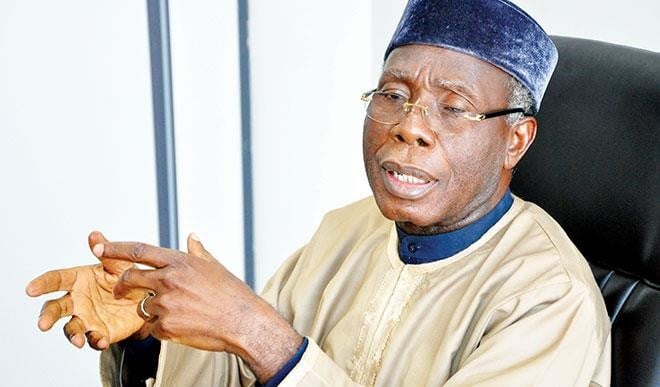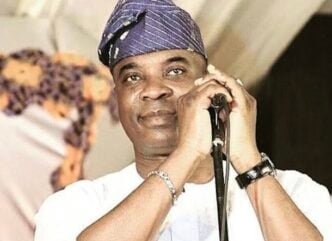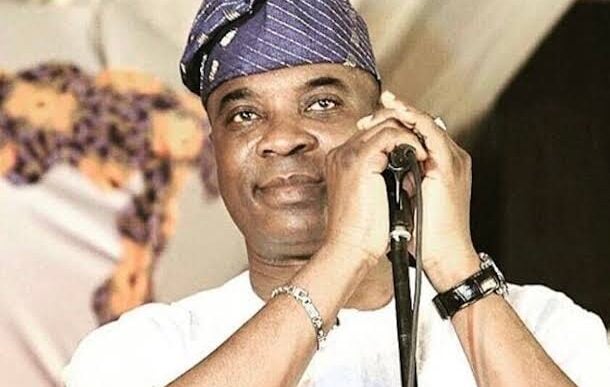Audu Ogbeh belonged to a generation that enjoyed Nigeria’s “good old days” — when scholarships were plentiful, school meals were free, and stewards stood by to do students’ laundry.
However, the oil boom shifted the nation’s focus away from agriculture. With foreign exchange flowing, food and goods were easily imported. Industries began to collapse, and farmers gradually abandoned their hoes.
Ogbeh, however, remained convinced that Nigeria’s prosperity lay in tilling its rich soil. He was full of ideas, sometimes unconventional, about how to turn the fortunes of the Nigerian economy through agriculture.
As Nigeria’s agriculture minister, he advocated tirelessly for agricultural revival, decrying the country’s over-reliance on food imports. For him, hunger is “the most dangerous enemy facing Nigeria”
Advertisement
Some of these ideas, he said, earned him more foes than friends, but he preached them with conviction up until he took his last breath on Saturday.
Ogbeh was born on July 28, 1947, in Otukpo, Benue state, to a farmer father who served as a steward to a colonial district officer. Before his birth, his parents had lost three sons.
He attended St Francis Primary School and St Michael Secondary School and later Kings College where he completed his high school in 1968.
Advertisement
LOVER OF LANGUAGE
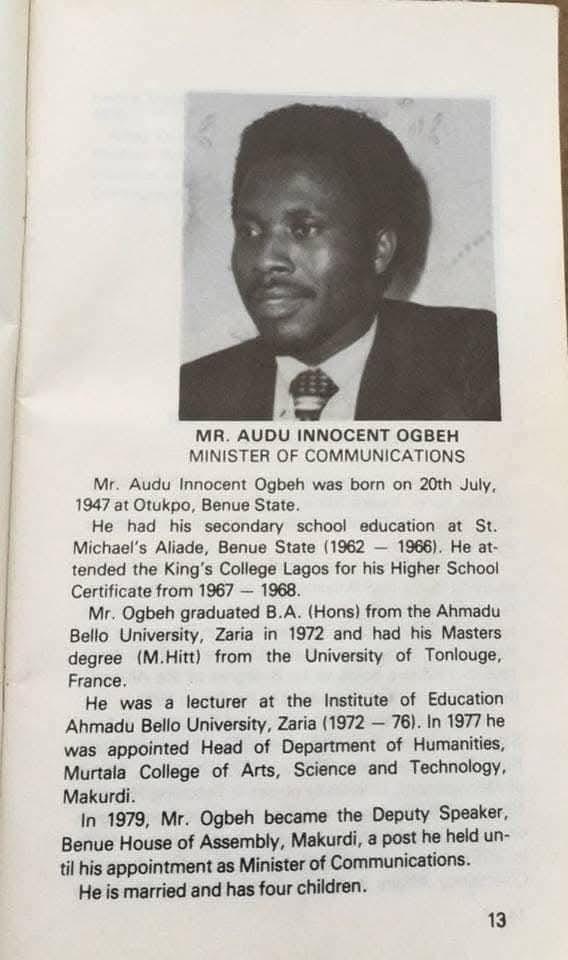
Ogbeh was a lover of language. Though born an Idoma man in an English colonised territory, he studied Latin in secondary school, and also had an opportunity to study German though the language was not on the curriculum.
Upon completing his secondary school education, he went to Ahmadu Bello University (ABU) to study French.
“I have always liked languages. Latin, French, Literature and History were my strong points. I was absolutely hopeless in the sciences,” Ogbeh said.
He also bagged a masters degree in French and literature from the University of Toulouse in France, and later spent a year on scholarship in Senegal.
Advertisement
DROPPED DIPLOMAT JOB OVER STRENGTH OF NAIRA
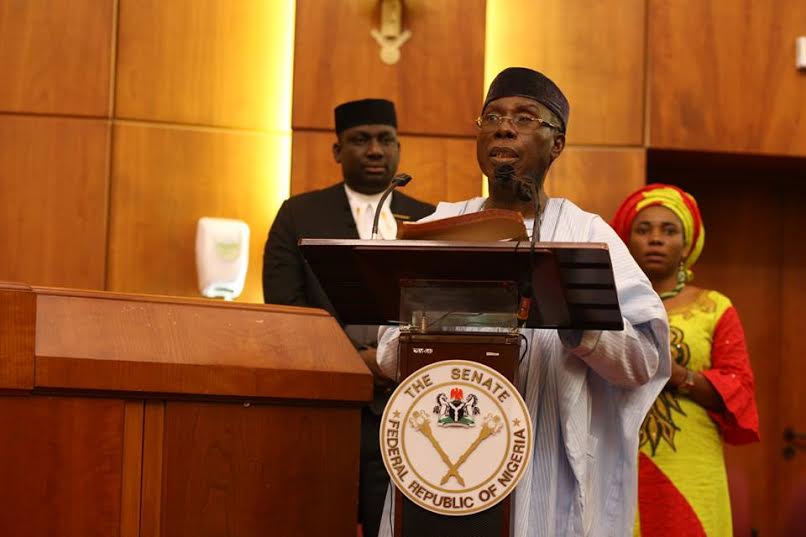
Ogbeh’s love for language was an extension of his desire to be a diplomat. When he returned to Nigeria from Senegal in 1972, he was selected to serve as some sort of personal assistant to Edwin Ogbu, Nigeria’s then representative to the United Nations.
However, Ogbeh, who said he grew up in a poor home, turned down the offer for a couple of reasons, one being that the naira had more value than the dollar at 80 kobo to $1.
“Then I had younger brothers and sisters to help through school. And there was no amount of dollars I could send home if I saved anything at all to help translate into naira to help my poor father, a retired poor farmer, to sustain these expenditures,” Ogbeh said.
Advertisement
Instead of going to the UN, Ogbeh chose to take up a lecturing job at ABU.
FROM LECTURING TO LEGISLATURE
Advertisement
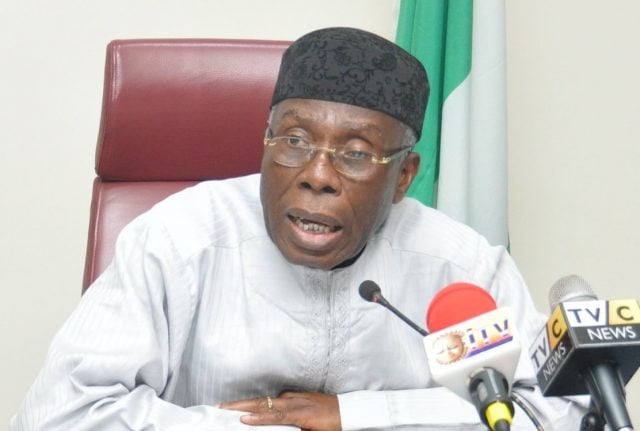
He was posted to the Institute of Education in ABU where he trained French teachers. At the invitation of the Benue state government, he left to head the department of Languages, Arts and Social Sciences in Benue College of Arts and Sciences in acting capacity till 1979.
Though the pay was not exactly great, he made the move because it brought him closer to his family, and farming.
Advertisement
“I had always wanted to be a farmer. So, from Makurdi I could go to Otukpa on weekends and plant my trees,” he said.
Ogbeh retired from his lecturing job and contested the election into the Benue state house of assembly when, according to him, a group he was part of promoted him to join politics in 1979.
Advertisement
His parents were against the idea over fears for his safety. Ogbeh said “the pressure was much” and after 142 campaign visits sharing “kolanuts and palm wine” here and there, he won the election on the platform of the National Party of Nigeria (NPN) and became deputy speaker of the house till February 1982.
At the start of the second republic under Shehu Shagari , Ogbeh, then 34 years old, was appointed as minister of communication. He left Benue for Lagos. There, John Oyegun, was his permanent secretary. He was later moved to the ministry of steel and industry until the 1983 coup when he was whisked to Kirikiri prison alongside other ministers, governors, lawmakers and business owners.
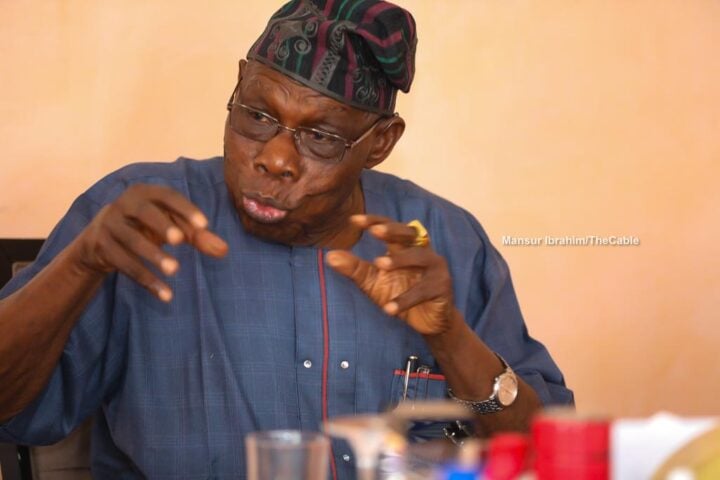
When Ogbeh left prison, he went back to farming. In 1988, he met with Obasanjo in Makurdi and asked him for some machines, including a gravity de-stoner, he (Obasanjo) got from his Chinese friends when he was head of state.
“I was probably the first private Nigerian to produce rice free of stones,” he said.
The former minister said he got the machines through a World Bank loan and was paying in installments but had an unpaid sum of N10,000.
“We were pretty close. I am still owing him N10,000! I am not paying back!”
Ogbeh’s re-entry into politics came when he was appointed national chairman of the PDP in 2001. Obasanjo was then civilian president.
However, the relationship between both men turned sour, when, according to Ogbeh, he protested Obasanjo’s handling of the political crisis that led to the removal of Chris Ngige as Anambra governor.
He said the president spoke to him in a manner he did not like and he subsequently resigned as chairman of the party.
He was subsequently appointed as minister of agriculture by late President Muhammadu Buhari in 2015 and served in the capacity till 2019.
“Strangely enough, I didn’t return in 2019. I was dropped after the first term and told that I knew too much. They didn’t want to stop importation of rice,” Ogbeh said.
Ogbeh said three assassination attempts have been made on him in his lifetime, the first in 1998, over his involvement in politics.
OGBEH DIED ‘A SAD MAN’
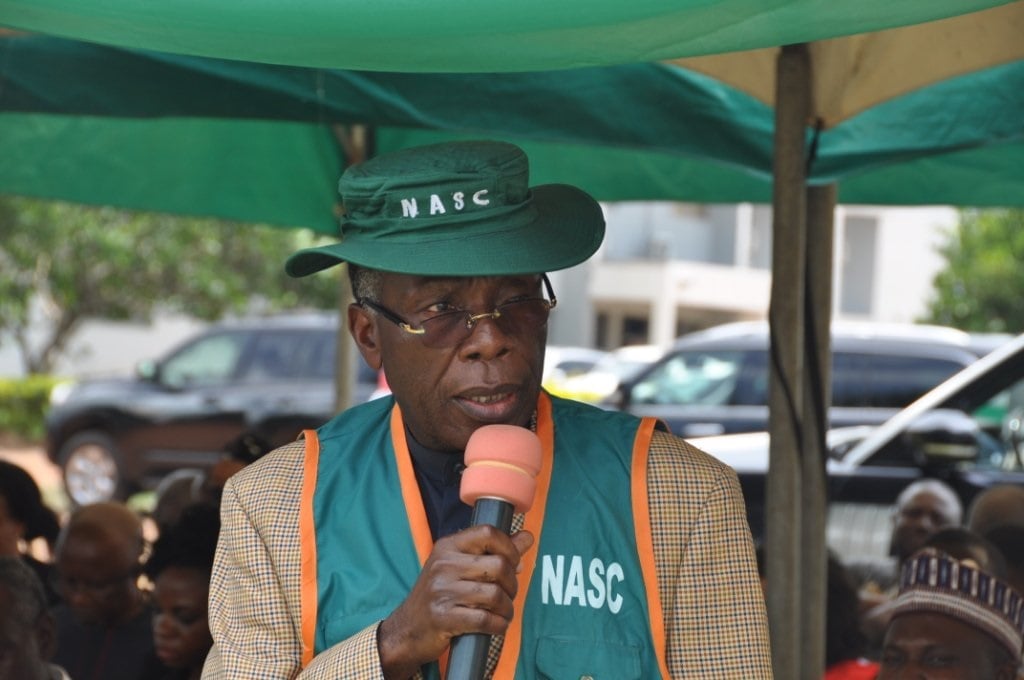
He was not economical with the truth and was openly critical of the elite, including when he blew the whistle on how some Nigerians import pizza from London and fly it into the country through British Airways.
One of his proposals as agric minister was the exportation of grass to Saudi Arabia to earn forex.
“We brought some in. But the negative attitude of Nigerians: when you say something and they don’t know anything about it, they go on air and call you names,” Ogbeh said recently.
Ogbeh was of the view that Nigeria’s problems would be solved if the local government was functioning properly, and called for the cessation of funds to state governments who create caretaker committees.
In an interview he granted shortly before his death, Ogbeh spoke with a heavy heart about the fate of Nigerian youths.
He had dreamed of a Nigeria far better than the one he knew — a country that would offer young people hope, opportunity, and security. But in his last days, he feared that dream was slipping away.
“I am a rather sad person because I can see dangers ahead. I tried to find happiness, but I am scared of the future,” he admitted.
Ogbeh is survived by his wife, five children, and eight grandchildren.

